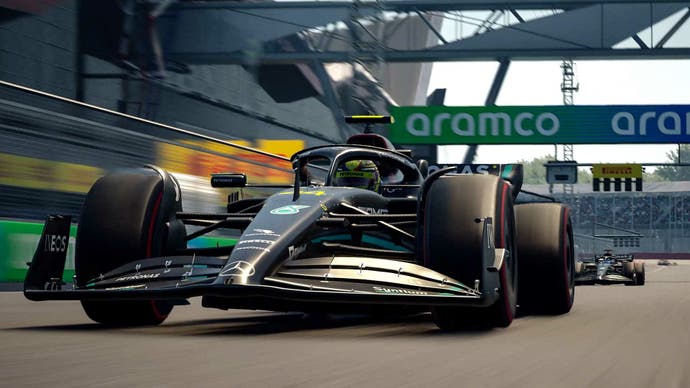F1 Manager 2023 review - challenging racing sim that scores some points
Sainz, sealed, delivered.
I'm a lifelong Ferrari fan, but I'm firmly in the "anyone but Red Bull" camp this year. With Max Verstappen sweeping almost every Formula 1 race, his lead feels unassailable, and I'm desperately hoping for a post-summer break shake-up. F1 Manager 2023 imagines a more competitive season, rewriting history without directly driving, unlike F1 23. This isn't the upgrade I hoped for over its predecessor, but Frontier's annual management sim shows the team principal life can offer thrills.
Let's begin with 2023's most significant addition, 'Race Replay.' By replicating how each real-life race plays out as the season progresses, this new mode challenges you to achieve better results than your chosen team's actual performance. Replays make for some fun alternate history and by providing options away from career mode, it feels less bare and more varied than F1 Manager 2022. It adds another layer of moreishness to what Frontier brought before, creating a form of roleplaying challenge against your real-world idols.
That's further boosted by 'Race Moments' based on pivotal race incidents, creating entertaining challenges like securing a McLaren double podium at Silverstone after the safety car emerged. I'm enjoying these moments and it's pleasing to know those will continue being added as the real-life season progresses. Disappointing then that Frontier gated twelve quirkier scenarios behind the Deluxe Edition. These offer entertaining but unrealistic scenarios, like tasking you with securing Haas and Nico Hulkenberg's first F1 podium in the excellently named 'Viva Haas Vegas.'
You'll mainly spend your time in career mode. Like before, F1 Manager includes all ten current F1 teams and twenty drivers, Nyck De Vries being an understandable exception. I do wish more time was spent on those driver character models. They aren't often seen so this isn't a huge problem, but most of them simply don't look good. Regardless, I sought a challenge that isn't outright punishing, so I picked McLaren. Every team's board matches expectations with real-life performance like regular points or podiums. Not so hard in the first season but the difficulty curve feels significantly higher in 2024 for smaller teams if you succeed, which can become offputting.
Daily management remains essentially unchanged and it usually works well. You won't micromanage everything but you must decide where the team's focus is. Engineers can create design improvements for this year's car or begin researching projects for next season, but they can't improve everything. Delivering results is vital but upgrades cost considerable money, and the Cost Cap means budgets aren't as limitless, making this a tough balancing act that can feel rewarding when it succeeds. However, it's quite disheartening to reach a new season and find you haven't got the performance boost you'd banked on.
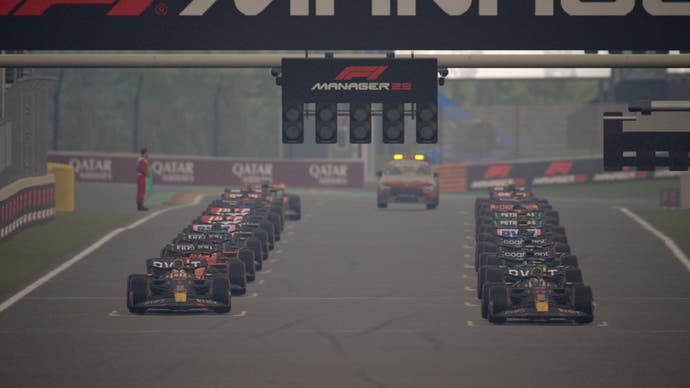
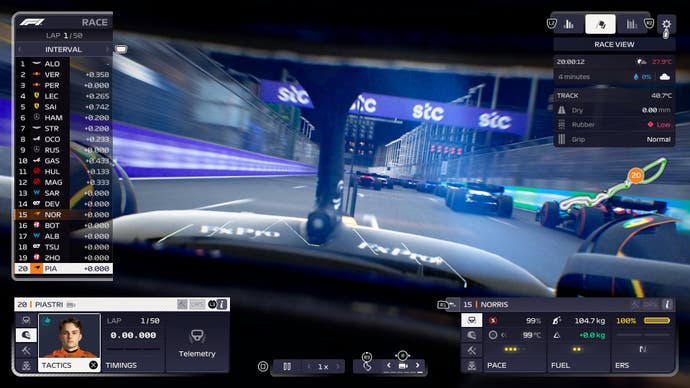
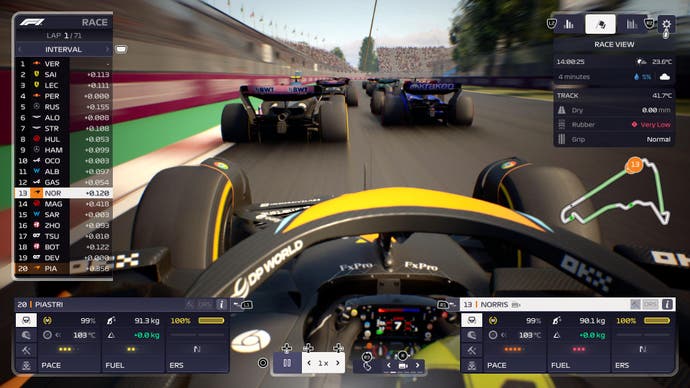
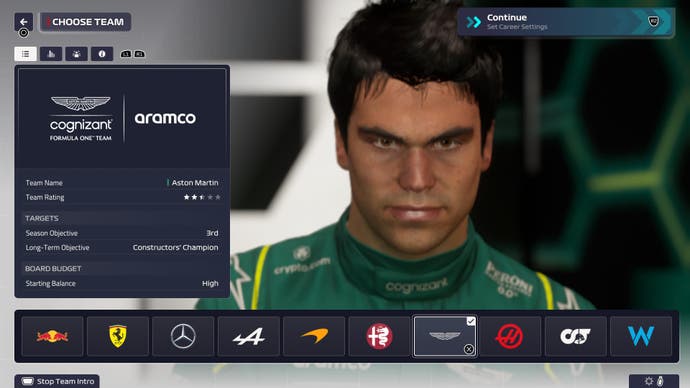
Alongside keeping team morale high, team principals must negotiate existing contracts or sign new staff and drivers. Contract talks can become tedious as current staff members will try pushing for much higher wages. More power to them but in-game, that leaves negotiations feeling drawn out. Patience gradually depletes with repeatedly rejected offers, too. Extra sponsorship cash to help fund contracts or upgrades is obtainable through optional performance targets, like getting the fastest lap. It's a gamble though as failing those incurs a small fee.
There are some smaller tweaks worth noting that make for useful, if not game-changing improvements. Every staff member now has a development focus for honing individual aspects, such as pace or race strategy. Pit crews have monthly training regimes to improve pit times yet pushing them too hard creates fatigue, risking errors during races. Weight also factors in when developing new car parts; altogether, some nice evolutionary changes build upon these simulation aspects well.
Once everything's prepared, it's time for race weekend. That usually splits between three practice sessions, qualifying and the main race. Notably, F1 Manager 2023 introduces six sprint races that alter a selected weekend's format. Sprints adds enjoyable variety to a race weekend, letting you focus purely on racing without worrying about fuel or tyre strategies. Matching the 2022 season rules, our final result determines the main race's grid positions.
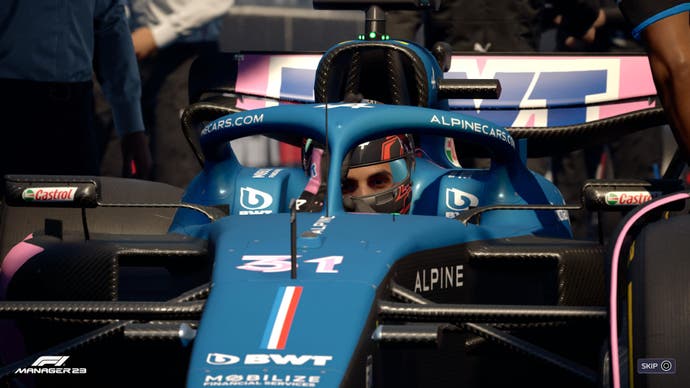
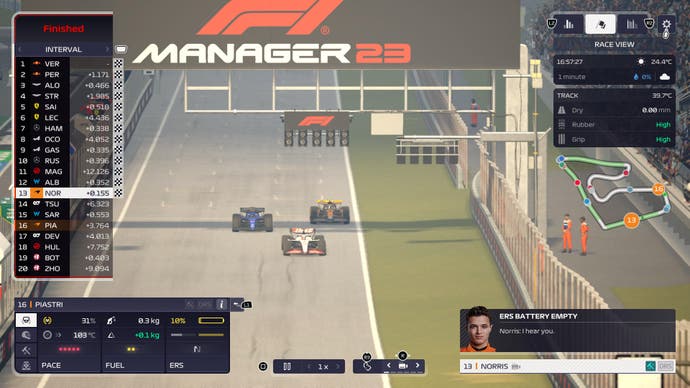
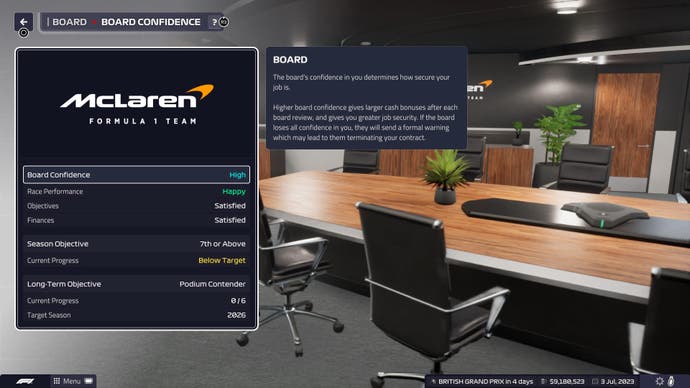
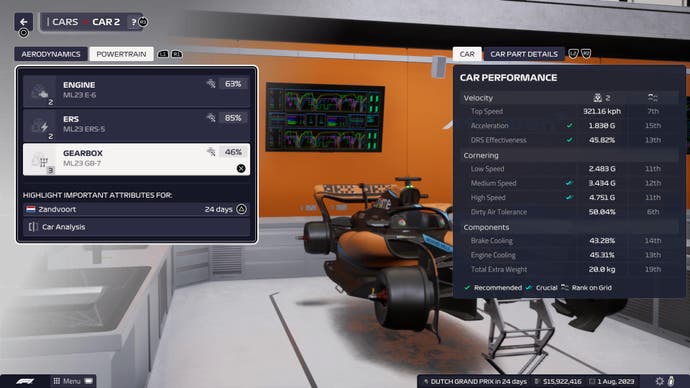
Unlike the real-life 2023 season's 'Sprint Shootouts,' there's no specific qualifying for sprints in F1 Manager. Two separate qualifying sessions in a row would feel tedious, so I'm fine with this omission. You can skip practice or qualifying to let it automatically simulate, but I wouldn't recommend it. Manually tweaking your cars after practice can ensure higher performance from each driver's setup. I do wish you could save car setups for races as adjusting this every time does become slightly annoying, so it pays to be thorough.
When the lights go green, your job involves tactically ordering both drivers across three key areas. Speed is affected by fuel consumption; the faster you go, the more you burn but continuous pushing risks the tank running empty before the chequered flag. Tyre degradation relates to driver aggression and reacts more realistically than in 2022. Overheating tyres degrade faster, but getting too cold risks losing grip. Finally, electric boosts using ERS (Energy Recovery System) can close the gap with nearby cars. Effective at boosting lap times, yet best used in moderation as a drained battery can leave drivers vulnerable. Tyres aside, I can't say this felt particularly different from before and that's fine, pushing on individual aspects does noticeably affect driver performance.
You'll also need to pay close attention to your pit stop strategy. Unless it rains, every driver must use two different tyre compounds before a race ends. Making the right strategy call with tyre degradation versus adding another lengthy pitstop is particularly pleasing. Smaller tactical orders take this further, like not fighting teammates or how aggressively you want drivers to defend and attack. That gives the impression that every decision counts in gaining or maintaining that competitive advantage. Thankfully, pausing mid-race means there's no need to rush decision-making, a luxury rarely afforded in real-life motorsports and that's rather helpful.

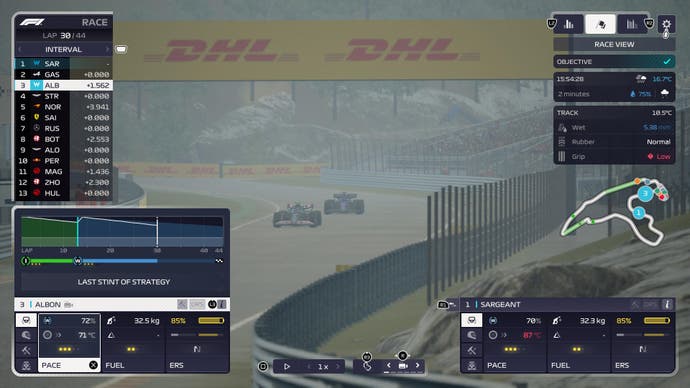
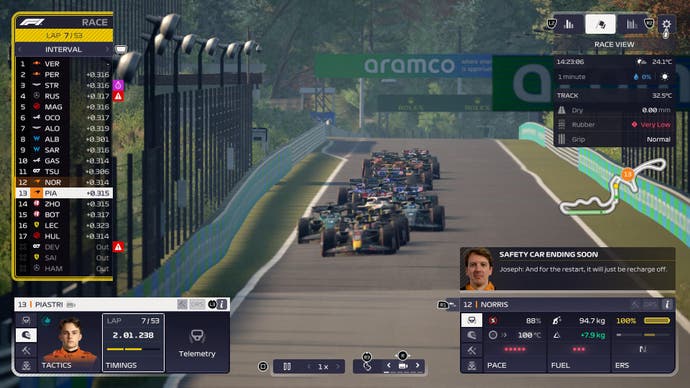
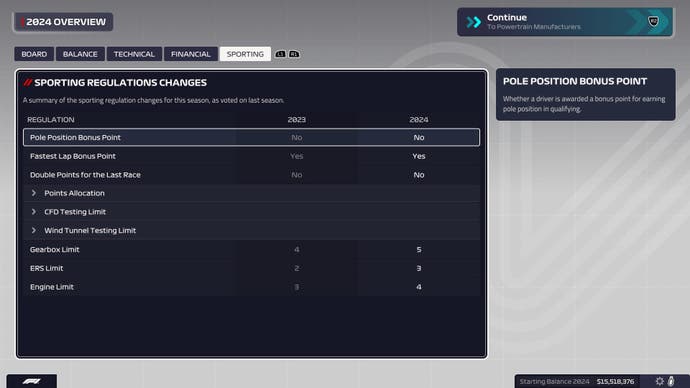
Unsurprisingly for an annual series, races play out similarly to last year. So, if you didn't like F1 Manager 2022, the evolutionary updates in 2023 likely aren't enough to persuade you. Still, F1 Manager often succeeds at recreating that race day excitement. An impressive 3D engine usually handles races well, complemented by energetic commentary from David Croft and Karun Chandhock during incident replays. A new 'Visor Cam' is a nice touch since you can't drive directly, making it the next closest thing. The new Driver Confidence system works well. A driver's mood improves with overtakes but decreases when incidents occur or they get overtaken. It's a realistic touch as lower confidence risks errors. I can't imagine anyone feels particularly motivated in 18th.
I spent my first season feeling like I was giving everything just to see Norris reach 9th or 10th place. The anxiety caused by competitors - usually Williams and Albon - closing in as the final laps arrive was strong, as was my subsequent relief at holding them off. Less competitive teams don't award that immediate satisfaction like Red Bull or Aston Martin does, effectively making your choice a silent difficulty setting. Long-term success takes time and can feel like a slow burner and for most, AlphaTauri or Alfa Romeo won't become champions in 2023 or even 2024. Even so, earning those essential points feels great and like last year, I repeatedly found myself going "one more round" into the early hours of the morning.
Unfortunately, F1 Manager doesn't fix my biggest issue from last year, that races don't always unfold realistically. Accidents that typically retire cars, like spinning into a wall, frequently don't. Many drivers simply carry on racing after a brief pause with minor damage. Unrealistic damage visuals don't help, often looking more like a scattering of pixels than vehicle debris. Seeing drivers who didn't cause accidents getting penalised isn't great at the best of times, and it's downright frustrating when it happens to your own team.
Completing a season took me around 20 -25 hours, which feels reasonable for a 23-race calendar. Once that's over, the board ranks you against their goals. Where your team finished in the Constructors Championship also determines your yearly payout size, so good results go far. Follow-up seasons let you renegotiate sponsorship obligations and potentially swapping engine suppliers, and I appreciated having greater control over a team's business. When you finish pre-season preparations, it's time to go racing again.
Returning issues means Frontier's latest sim isn't the leap forward I hoped for but F1 Manager 2023 remains entertaining. I doubt it will change your mind if you weren't convinced by F1 Manager 2022, though Race Replays and Sprints expand the existing premise meaningfully. Whether you're looking for quicker victories or long-term glory, securing victories feels rewarding and I enjoyed my return to management duties.
